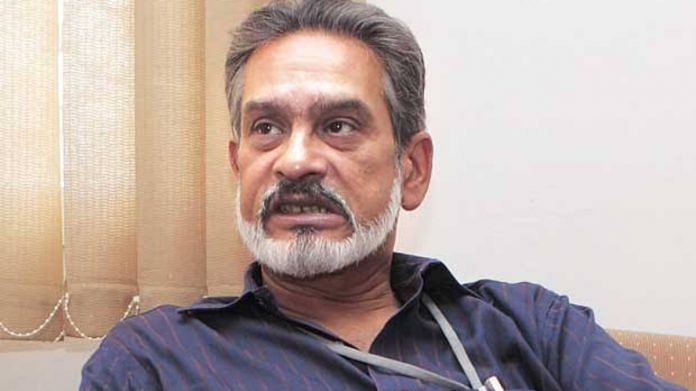New Delhi: The Covid-19 pandemic has brought to a halt all household surveys conducted by the government, which is why there will be no consumption survey this year, said head of the government-appointed panel on economic statistics and former chief statistician Pronab Sen.
In an interview with ThePrint, Sen also estimated the Indian economy may contract by at least 11.5 per cent in 2020-21 due to the pandemic and the subsequent lockdown.
The 11.5 per cent contraction forecast is so far the worst growth forecast for India made by any financial institution or economist for 2020-21.
“My estimates are grim. At the moment, I expect a contraction of 11.5 per cent. But this is based on the assumption that the lockdown ends on 31 May,” he said.
Sen added the estimates made by others may not have factored in the multiplier effects of the 2-month lockdown on the economy.
Also read: I will do any job I find – How India’s desperately poor hope to get out of Covid misery
Household surveys ‘dead’ for the year
Sen added household surveys are “dead” for the year.
“Any data that is collected by a door-to-door survey will be impacted by the pandemic. I don’t think the government system will permit our field investigators to take that risk. Also, villages will not allow outsiders to enter,” he said, adding that the consumption survey, which is a household survey, will also be impacted.
“Consumption survey is a household survey. It collects a huge amount of data. There will be serious ramifications (of the survey not being completed),” he said, adding that the last consumption survey was conducted in 2011-12.
The consumption survey provides trends on consumption levels across rural and urban areas, and for food and non-food items. This information provides policy makers crucial insights into demand patterns and consumer behaviour. It also contributes to changing the base year for GDP calculations.
The government had announced its intent to conduct consumer expenditure surveys for 2020-21 and 2021-22 after it decided against releasing the 2017-18 survey, citing data quality and other methodological issues with the survey.
A leaked draft of the survey had, however, shown a fall in rural consumption levels and consequently an increase in poverty, which many attribute to the fallout of the demonetisation.
The jobs data, however, may not be adversely impacted as it is dealing with the same set of households over a few quarters and information in these cases can be collected over phone, said Sen.
GST data
Sen pointed out that normal processes of data collection have been badly hurt and said many of the data may come with a lag, thus reducing the scope for data and evidence-based policy making.
During current times, even if the data comes with a lag of two or three months, it may be too late for decision-making, he said.
Sen added the goods and services tax (GST) data may be a good indicator to assess the impact on the ground of the actual opening up though it cannot be used to measure GDP data.
“The GST data should be able to tell you which units are not transacting by products or geography. It will help you assess the rate at which the economy is responding to the relaxation of the lockdown,” he said.
No ‘clarity’ on house-listing census
Sen said the house-listing census — the first step towards carrying out the decadal census — was supposed to start in April and continue until September.
“The earliest they may be able to start is July. It will take at least 3-4 months. Then the data needs to be used to carve out enumeration blocks for conducting the census. That will take another 3-4 months. Only then can you start the census process. But there is no clarity as of now on when the house-listing phase can start,” he said.
Also read: India’s household debt has risen 80% in 2017-18. It could bite if incomes don’t grow



